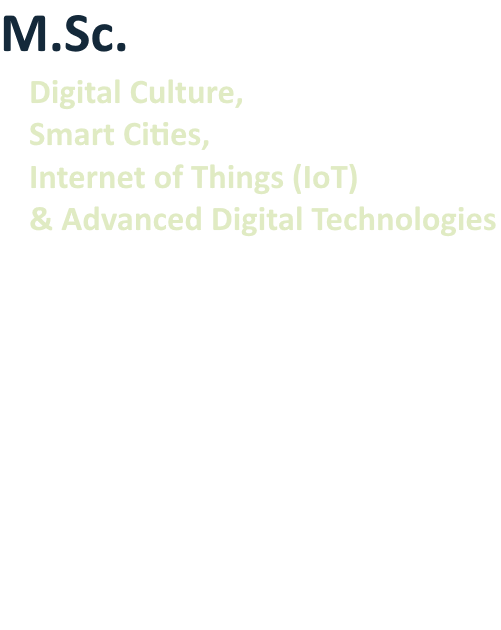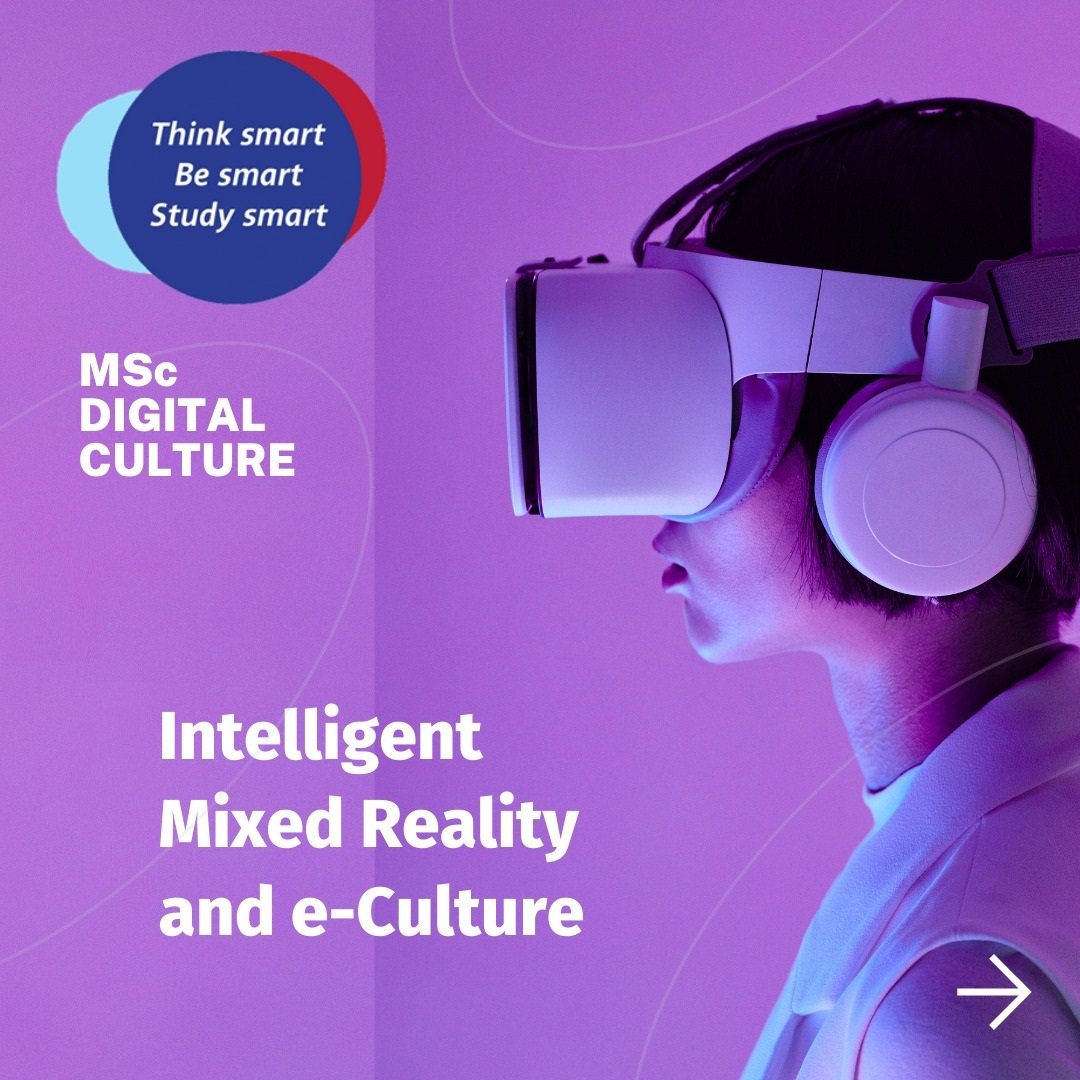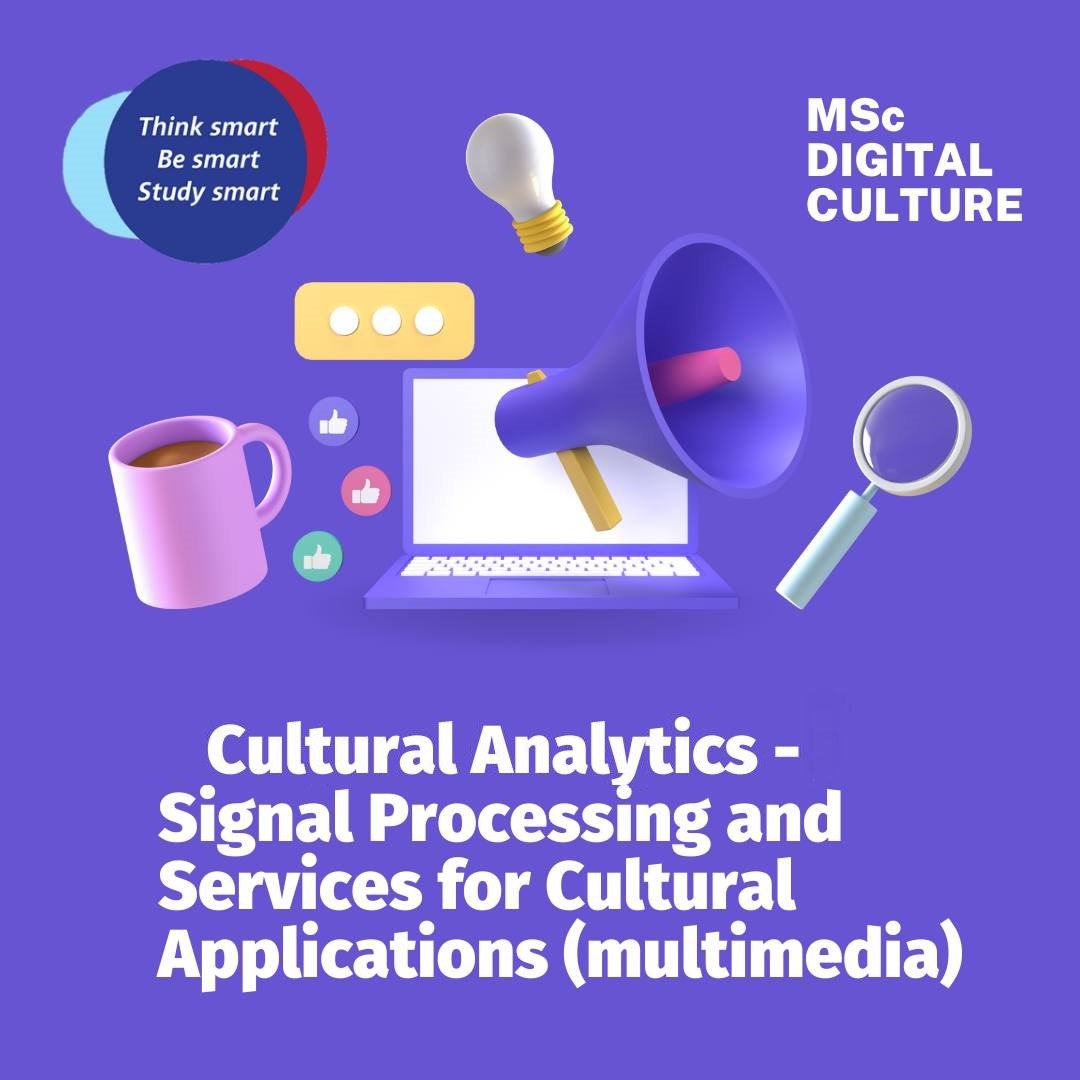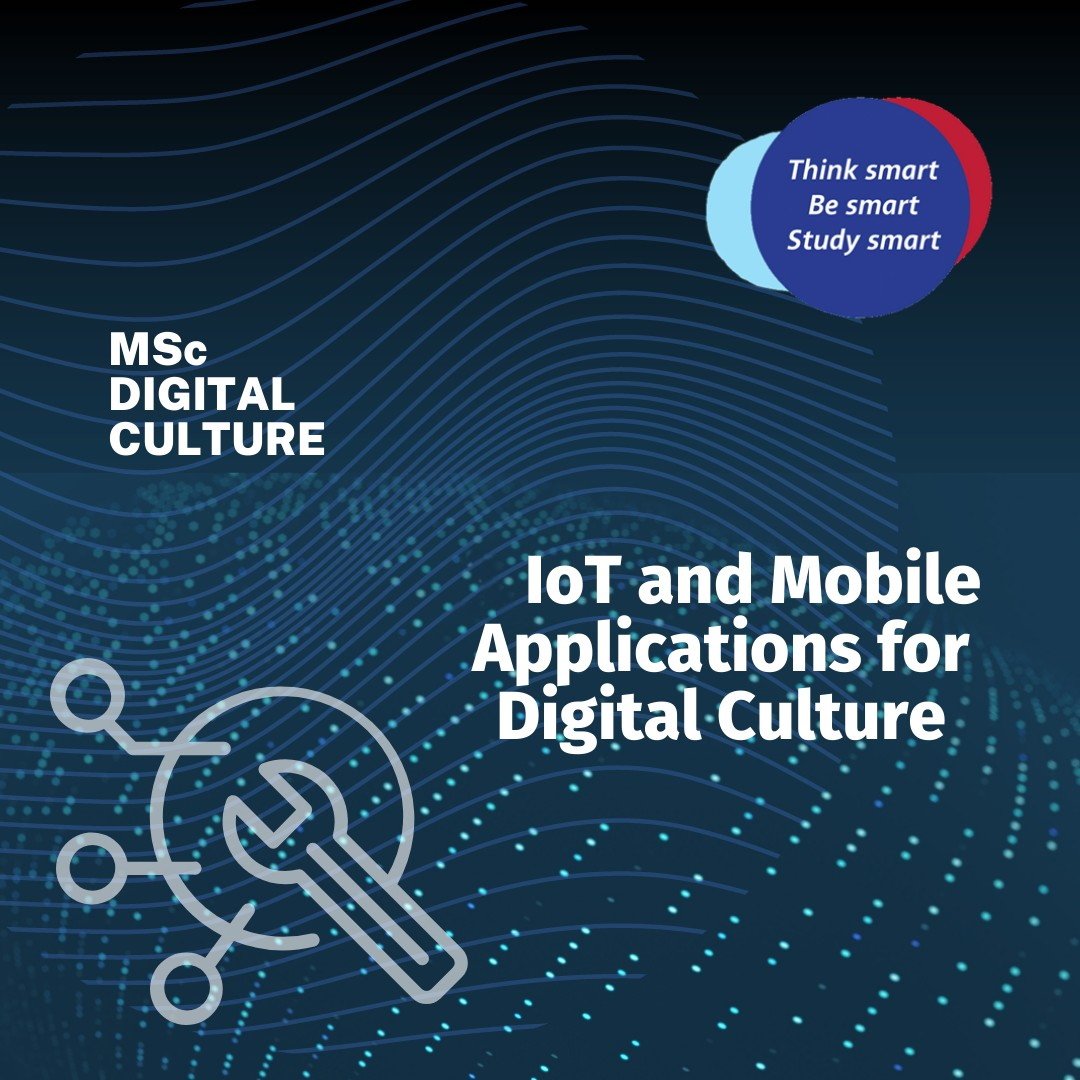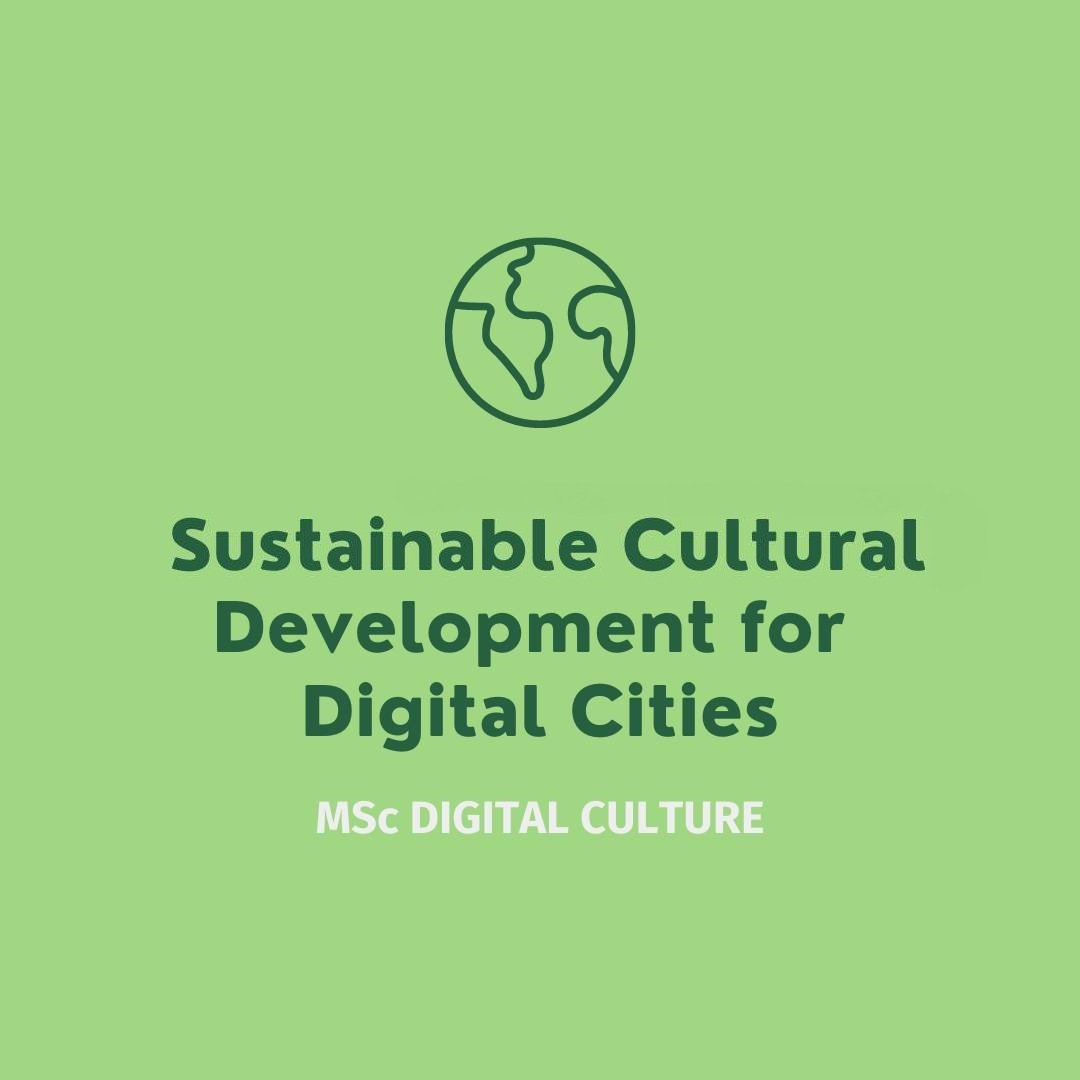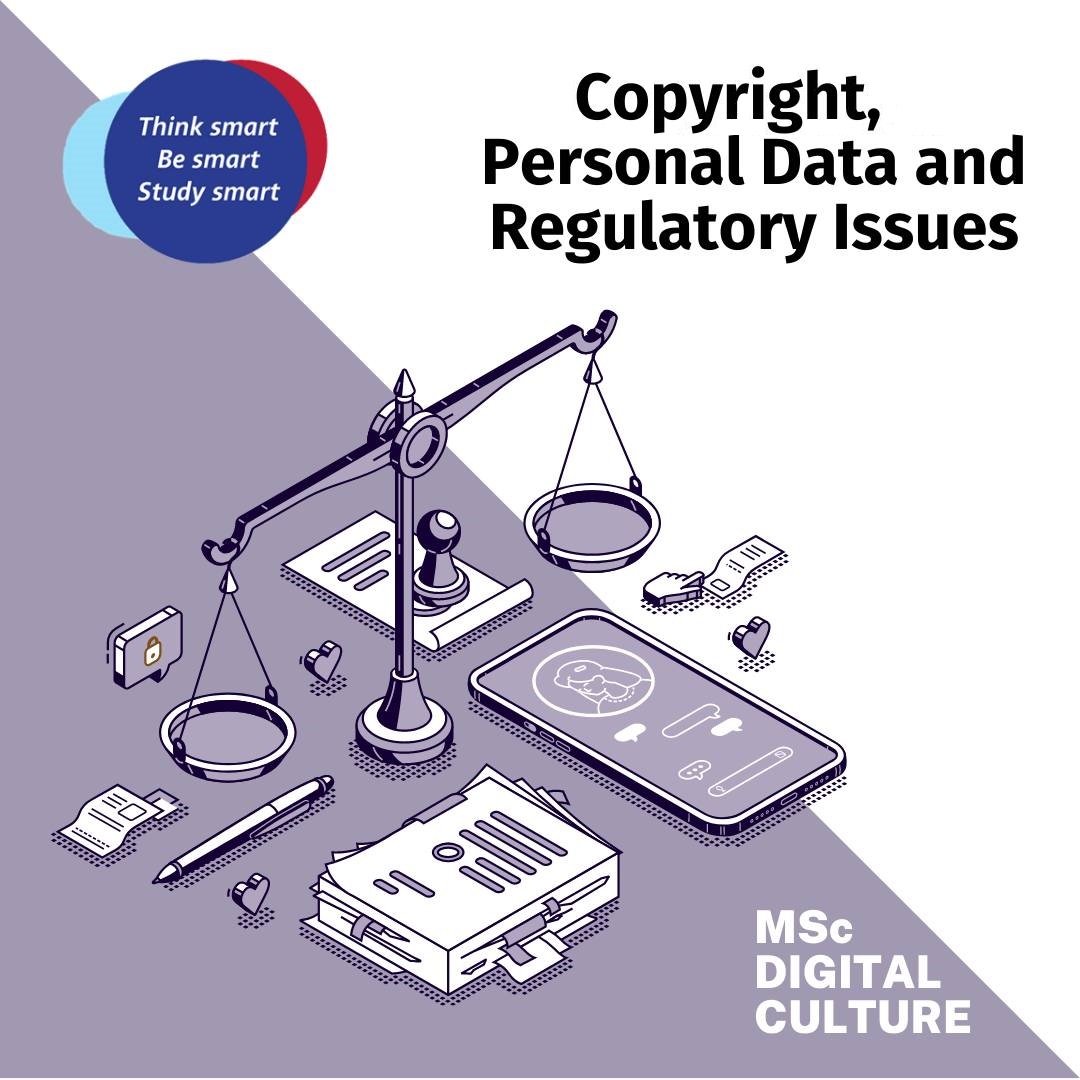
The Specialization/Track "Digital Culture" aims to educate and train professionals from various disciplines in theoretical, scientific, and technological fields to promote the emergence, protection, promotion, and management of cultural assets with the contribution of advanced digital technologies. It equips students with the necessary knowledge of the latest global trends in the emerging interdisciplinary field of digital culture and ensures the development and shaping of a new digital strategy in culture. It promotes the preservation and promotion of cultural heritage in our country, highlighting new ways of effective management of cultural organizations within the broader framework of social and educational policy. It incorporates modern knowledge fields, including 3D modeling, the application of mixed reality technologies (Virtual Reality, Augmented Reality, Virtual Worlds), mobile communications, internet and social media technologies, signal processing and multimedia, with the ultimate goal of optimal digital management, documentation, and curation of cultural heritage as well as aspects of contemporary culture. As our country possesses a rich cultural heritage in a continent (Europe) that is itself a cultural powerhouse, the strengthening of interdisciplinary collaboration will contribute to the enhancement of the Creative Industry, the protection of our cultural heritage, and the promotion of contemporary creation.
In the specialization of "Digital Culture" of the M.Sc. (Master of Science) program, holders of a bachelor's degree from Greek or foreign universities are eligible to apply, in accordance with the provisions of Law 4957/2022. The indicative specializations include: Civil Engineering, Urban Planning, Humanities, Natural Sciences or Technological Sciences, School of Philosophy, Pedagogy, Fine Arts, Engineering, Departments/Schools of Information and Communication Technologies, Agricultural Sciences, Theology, Economics and Social Sciences, Polytechnic Engineering or Polytechnic Schools, Environmental Engineering, Law, Departments of Computer Science, Sound and Image Arts, Cultural Technology and Communication, Cultural Environment and New Technologies Management, Informatics, Media and Communication, Digital Media, Communication and Cultural Management, Art Conservation and Restoration, History and Archaeology, Graphic Design, Informatics and Mass Media, Management-Economics and Communication, Cultural and Touristic Units, Archives, Libraries and Museology, Photography and Audiovisual Arts, Greek and European Culture, Maritime Studies, Technological Engineering of Informatics, Physics, Mathematics, Chemistry, Spatial Planning and Regional Development, Civil Engineering, Production and Management Engineering, Electrical Engineering and Computer Engineering, Pedagogical Departments, Special Education, History-Archaeology and Social Anthropology, Political Science and Public Administration, Communication and Mass Media, Media Communication and Culture, Theater Studies, Philosophy, Pedagogy, and Psychology, History and Philosophy of Science, Public Administration, Economics and Regional Development, Social and Political Sciences, Social Anthropology, Sociology, Psychology, Technological Educational Institutes (TEI), or equivalent institutions in Greece, as well as equivalent foreign universities (the above list is indicative and not exhaustive) (for more information about each specialization/track, you can contact the Secretariat of the M.Sc. program via email: dcsciot@unipi.gr or phone: +30 210 4142451 (Monday to Friday, 12:00-14:00 & 16:00-18:00).
Course Schedule
The courses will start in October 2023. The teaching hours are from 18:00 to 21:00, four days a week.
Applications
Interested individuals can submit their applications until October 30, 2023, electronically on the website http://www.cs.unipi.gr/registration/dicul.php and send their application and relevant documents to the Secretariat of the Postgraduate Studies Program (M.Sc.).
For further information, please refer to:
Email: dcsciot@unipi.gr,
https://www.facebook.com/dcsciot,
http://www.cs.unipi.gr/dcsciot







